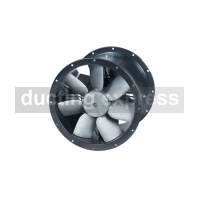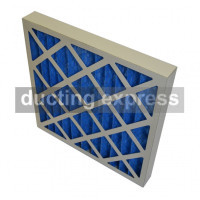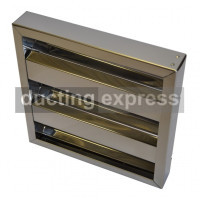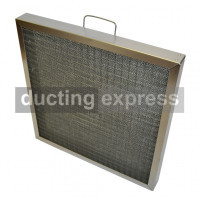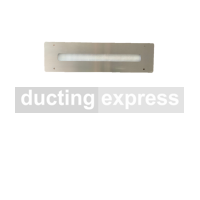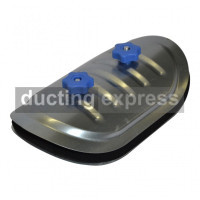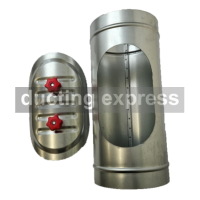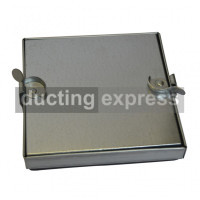Gas Interlock System Kits & Equipment For Commercial Kitchens
All commercial kitchens in the UK are required to have a Gas Interlock System fitted to meet British Standard BS6173 and the Gas Safe regulations. If you own a café, restaurant or catering company you have probably heard about Gas Interlock Systems and know that you are legally required to have one fitted to your kitchen. But what are they, how do they work and why do you need one?
Frequently asked questions about Gas Interlock Systems
What is a Gas Interlock System?
Gas interlock systems restrict the flow of gas to kitchen appliances until there is sufficient working ventilation, or if there is an extractor fan failure. The Gas Safe regulations legally require all commercial kitchens to have a gas interlock system fitted to ensure safe working conditions. A gas proving system can prevent the build-up of carbon monoxide and nitrogen dioxide that present a significant threat to employee health. The interlock system is also designed to prevent explosions caused by a build-up of unburned gas.
How do Gas Interlock Systems work?
A Gas Interlock System kit includes air differential pressure switches and a IP56 rated gas minder control box which monitors air movement. When there is no airflow, or the airflow is insufficient, the gas supply to any appliances is cut off. With the gas flow cut off, kitchen equipment cannot be used until the kitchen gas interlock system detects adequate airflow again. Also known as a gas safety interlock system, these devices provide a failsafe that helps maintain kitchen safety and reduces the risk of an accident.
Why do I need a Gas Interlock System?
Maintaining the safety of your kitchen staff and customers is always one of the most important factors when running any commercial kitchen. A gas safety interlock system will safeguard your kitchen by reducing the risk of any gas-related accidents. You must also have a Gas Interlock System installed to be compliant with the law. The British Standard BS6173 and the UK’s gas safety regulations require all commercial kitchens to be fitted with Gas Interlock Systems.
What are the benefits of commercial kitchen ventilation and extraction equipment?
Running a commercial kitchen in the UK requires quality commercial kitchen equipment that’s also compliant with Local Planning Authorities’ regulations. The purpose is to ensure that your premises are safe for use and that they do not inadvertently cause harm to your employees. Apart from being Gas Safe registered and fully compliant, commercial kitchen extraction is important for several reasons, which include:
- A healthy, comfortable and safe environment for customers and staff
- Addresses harmful by-products of combustion
- Helps you control heat, grease, steam, smoke and odours
- Offers adequate commercial kitchen ventilation
- Provides better air quality
- Reduces noise
- Aligns with the layout of your premises for a more ergonomic environment
- Introduces greater efficiencies
- And more
What parts and accessories do you need for your gas-powered commercial kitchen?
If you are using gas in your cooking processes, a gas interlock system is a must. Here at Ducting Express, we help you ensure that your commercial kitchen equipment in the UK is of the highest quality through tough, durable and reliable materials that facilitate efficiencies when using your commercial kitchen extractor. With us, you can choose from a variety of associated parts and accessories to help your commercial kitchen equipment work like a well-oiled machine, such as:
- Gas Interlock System Kit
- Gas Flexible Connection
- Solenoid Valves
- Speed Controllers & Starters
- Contra Rotating Case Mounted Axial Fans
- Panel Filters
- Stainless Steel Baffle Filters
- Mesh Grease Filters
- Extraction Canopy Slimline LED Lights
- Spiral Access Doors
- Spiral Duct Access Door Adapters
- Access Door Insulated
Ensure your commercial kitchen is properly equipped and operating optimally with the right gas interlock systems and related parts to ensure smooth operations that create a healthy interior environment, especially when producing food with gas.
Browse through our extensive selection of parts and accessories and do get in touch to chat with our friendly and helpful team if you have any questions or require assistance.
-
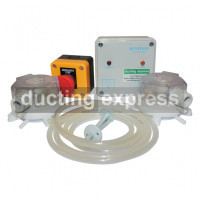
Gas Interlock System Kit
-

Gas Flexible Connection
-
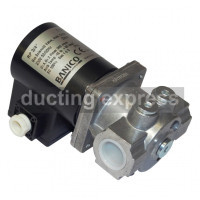
Solenoid Valves
-
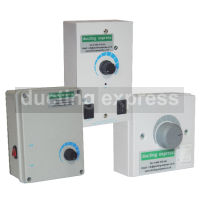
Speed Controllers & Starters
-

Contra Rotating Case Mounted Axial Fans
-

Panel Filters
-

Stainless Steel Baffle Filters
-

Mesh Grease Filters
-

Extraction Canopy Slimline LED Lights
-

Spiral Access Doors
-

Spiral Duct Access Door Adapters
-

Access Door Insulated
